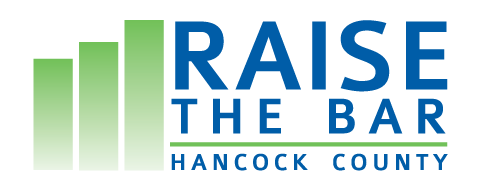WorkAdvance for
Human Service Careers
General Information
All training at Owens Community College - Findlay Campus
Each day includes career AND human service instruction
Instruction includes online, hands-on, group, and one-on-one
Monday-Friday from June 9-20, 2025, 8:00am-3:00pm each day
Modeled workday, with limited breaks and one 30-minute lunch period
Lunch provided daily
Career Readiness
-
Defining professionalism in human services roles
Professional vs. unprofessional behavior
Work attire: Understanding dress codes
Language use: Formal vs. informal communication
-
Proper use of company resources
Integrity and accountability in human services
Handling confidential information
Reporting unethical behavior
-
Differences and similarities between communicating with supervisors vs. peers
Recognizing communication styles (assertive, passive, aggressive)
Checking in regularly and providing updates
Schedule changes
-
When and how to approach supervisors for support
Differentiating between guidance and micromanagement
Building Positive
Asking for help without appearing unprepared
Presenting challenges to supervisors
-
Email and Social Media Etiquette
Crafting professional emails
Social media do’s and don’ts as a professional
When to text vs. call
Leaving professional voicemails
-
The Impact of Ghosting
Consequences for clients and employers
Real stories of ghosting effects
How to professionally end employment
Maintaining communication during absences
-
Identifying Personal Stressors
Balancing work demands with personal life
Techniques for stress management
Community and workplace resources
Building a personal support network
Crafting a work-life balance strategy
-
Taxes, deductions, and take-home pay
Creating a Monthly Budget
Financial Goal Setting
Evaluating wages and benefits
Local assistance programs, tax credits, and community resources for entry-level workers
-
Key sections and tailoring to roles
Identifying transferable skills
Answering behavioral questions
Demonstrating enthusiasm and knowledge
-
Building inclusivity and respect in the workplace
What to look for in a potential employer
Avoiding misunderstandings in the workplace
Human Service Readiness
-
Ethics and Boundaries: Setting Professional Standards
The Human Services Professional Ladder (careers, pathways, certifications, and degrees)
-
Working with Marginalized and/or High-Need Clients
Overcoming Personal Bias: Self-Reflection Activities
Gathering Accurate and Relevant Information
-
Establishing Trust and Building Rapport
Effective Motivational Interviewing Techniques
Active Listening and Non-Verbal Communication
-
Accurate Record Keeping and Progress Notes
Confidentiality, HIPAA, and Legal Considerations
Writing and Reviewing Documentation
-
Identifying Crisis Situations: Behavioral Cues and Red Flags
De-Escalation Techniques and Emotional Regulation
Safety Planning and Crisis Protocols
-
*Professional Certificate Available
Identify, understand and respond to signs of mental illnesses and substance use disorders
-
Teaching Daily Living Skills (health habits, hygiene)
Building Resilience and Coping Strategies
Goal Setting Techniques and Encouraging Follow-Through
-
Identifying Local Resources (housing, food, mental health, employment)
Guiding Clients to Access Services Effectively
Teaching Clients Self-Advocacy and System Navigation
-
Providing individuals from poverty with the knowledge, skills, and resources to navigate the world and build a more stable futur
Already Have A Health-Related Degree or Certificate?
"Your Skills Still Matter—Just in a Different Setting"
Bridge the gap between healthcare and behavioral health.




